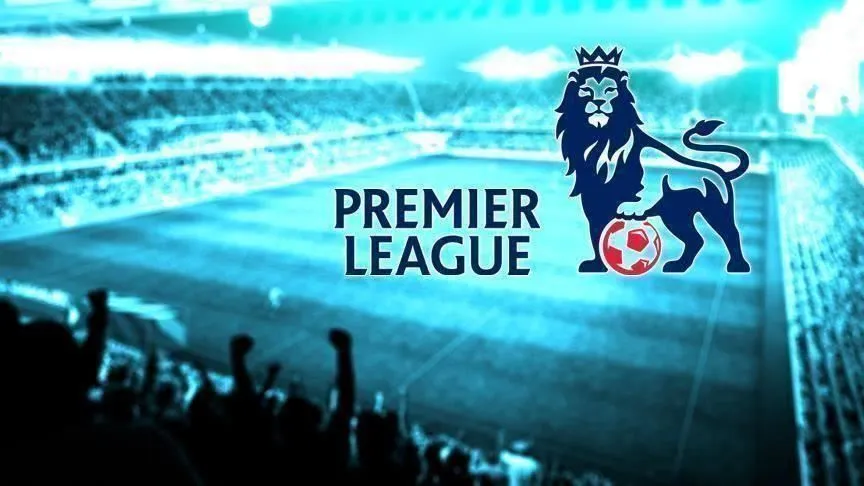In the realm of professional sports, few leagues have captured the world’s imagination like the Premier League. From its humble beginnings as the Football League First Division in the late 19th century, the Premier League has evolved into a global phenomenon, captivating audiences across the globe with its unparalleled drama, talent, and sheer entertainment value.
This article delves into the fascinating history, growth, and impact of the Premier League, exploring the key factors that have propelled it to the pinnacle of the sports world. Drawing inspiration from the Premier League’s own news story, we’ll uncover the untold narratives that have shaped this remarkable league, providing readers with a comprehensive understanding of its rise to global dominance.
The Birth of a Legend

The Premier League’s origins can be traced back to the late 1800s, when the Football League was first established in England. Over the decades, the league underwent various transformations, with the top division eventually becoming known as the Football League First Division in 1888.
The Formation of the Premier League
- In the early 1990s, the top clubs in the Football League First Division decided to break away and form their own independent league, known as the Premier League.
- The decision was driven by a desire for greater financial autonomy and the ability to maximize commercial opportunities, which had been limited under the existing Football League structure.
- The Premier League’s inaugural season kicked off in 1992, with 22 clubs competing for the inaugural title.
The Early Years: Establishing a New Era
- The first season of the Premier League was marked by intense competition, with Leeds United emerging as the surprise champions.
- The introduction of the Premier League brought significant changes to the way the game was governed and marketed, with the league taking on a more corporate and commercial approach.
- This early period laid the foundation for the Premier League’s future success, as the league’s administrators worked to establish a stronger brand identity and attract lucrative sponsorship deals.
The Rise of the “Big Four”
- In the early 2000s, a dominant quartet of clubs – Manchester United, Arsenal, Chelsea, and Liverpool – emerged, establishing a clear hierarchy at the top of the Premier League.
- These “Big Four” clubs dominated the league for several seasons, winning multiple titles and establishing themselves as global powerhouses.
- The success of the “Big Four” helped to further cement the Premier League’s status as one of the most competitive and prestigious leagues in the world.
The Globalization of the Premier League

As the Premier League grew in stature and popularity, it began to transcend the borders of England, attracting a vast international audience.
Expansion into New Markets
- The Premier League’s global expansion strategy has been a key driver of its success, with the league actively seeking to build its brand and fanbase in new markets around the world.
- This has involved initiatives such as opening international offices, hosting preseason matches in foreign countries, and engaging with local media partners to broadcast Premier League matches globally.
The Rise of International Superstars
- The Premier League has attracted some of the world’s best players, with top international stars like Cristiano Ronaldo, Lionel Messi, and Neymar all plying their trade in the league at various points.
- The presence of these global superstars has helped to further elevate the Premier League’s profile and attract even more fans from around the world.
The Premier League’s Global Reach
- Today, the Premier League is broadcast in over 200 countries and territories, with a global audience estimated to be in the billions.
- This global reach has allowed the Premier League to generate significant commercial revenue, with lucrative TV deals, sponsorship agreements, and merchandising opportunities driving the league’s financial growth.
The Premier League’s Competitive Landscape

One of the hallmarks of the Premier League is its intense and unpredictable competitive landscape, with multiple clubs vying for the title and European qualification spots each season.
The Battle for the Title
- The Premier League title race has been characterized by fierce competition between the league’s top clubs, with multiple teams challenging for the championship each year.
- In recent seasons, the title race has been especially close, with teams like Manchester City, Liverpool, and Chelsea all emerging as consistent contenders.
| Season | Champion |
|---|---|
| 2021-22 | Manchester City |
| 2020-21 | Manchester City |
| 2019-20 | Liverpool |
| 2018-19 | Manchester City |
| 2017-18 | Manchester City |
The Race for European Qualification
- In addition to the title race, the battle for Champions League and Europa League qualification spots has also been a key source of drama in the Premier League.
- Teams finishing in the top four spots in the league table earn a place in the following season’s Champions League, while the next two positions qualify for the Europa League.
- This race for European qualification has led to intense competition and nail-biting finishes in the latter stages of each Premier League campaign.
- Top 6 Finishes in the Premier League (2017-2022):
- Manchester City
- Liverpool
- Chelsea
- Manchester United
- Tottenham Hotspur
- Arsenal
The Relegation Battle
- At the other end of the table, the fight to avoid relegation to the Championship (the second tier of English football) is another high-stakes drama that plays out in the Premier League.
- Each season, the three teams that finish at the bottom of the league table are relegated, with the remaining clubs competing to secure their top-flight status for the following season.
- This relegation battle has produced some of the most nail-biting and emotional moments in Premier League history, as clubs and their fans fight to avoid the financial and reputational consequences of dropping out of the top division.
The Premier League’s Influence on Global Football

The Premier League’s impact on the world of football extends far beyond the boundaries of England, with its influence being felt across the globe.
The Premier League’s Impact on Player Development
- The Premier League has become a breeding ground for some of the world’s best young talent, with clubs investing heavily in youth academies and player development programs.
- Many of the league’s biggest stars, such as Trent Alexander-Arnold, Bukayo Saka, and Mason Greenwood, have emerged from these youth systems, showcasing the Premier League’s ability to nurture and cultivate exceptional football talent.
- Premier League Youth Academy Graduates (2021-22 Season):
- Trent Alexander-Arnold (Liverpool)
- Phil Foden (Manchester City)
- Mason Greenwood (Manchester United)
- Bukayo Saka (Arsenal)
- Reece James (Chelsea)
The Premier League’s Influence on Tactics and Coaching
- The Premier League’s fast-paced, high-intensity style of play has had a significant influence on tactical approaches to the game around the world.
- Managers and coaches from various leagues have studied and adapted the Premier League’s tactical innovations, incorporating elements such as pressing, counterattacking, and possession-based football into their own teams’ strategies.
- This cross-pollination of ideas has led to a dynamic and ever-evolving landscape in the global football community, with the Premier League serving as a crucial source of inspiration and innovation.
The Premier League’s Role in Player Transfers
- The Premier League’s vast financial resources and global appeal have made it a hub for high-profile player transfers, with the world’s top talent often gravitating towards the league.
- This influx of world-class players has had a ripple effect on the international transfer market, as other leagues and clubs seek to emulate the Premier League’s ability to attract and retain elite talent.
- The Premier League’s ability to secure the services of the game’s biggest stars has also raised the overall standard of play in the league, further enhancing its reputation as a premier destination for the world’s best footballers.
The Premier League’s Socio-Economic Impact

The Premier League’s influence extends beyond the pitch, as it has become an integral part of the socio-economic fabric of England and, increasingly, the global community.
The Premier League’s Economic Contribution
- The Premier League is a significant contributor to the UK economy, generating billions of pounds in revenue and providing employment opportunities for tens of thousands of people.
- The league’s economic impact can be seen in the revenue generated from television broadcasting rights, sponsorship deals, merchandise sales, and matchday attendance.
- These economic activities have a ripple effect, supporting businesses and communities across the country, and helping to drive investment and growth in the sports and entertainment sectors.
The Premier League’s Social Impact
- The Premier League has played a significant role in promoting diversity, inclusivity, and social responsibility within the world of football.
- The league has implemented initiatives aimed at addressing issues such as racism, mental health, and LGBTQ+ representation, using its platform to raise awareness and drive positive change.
- These efforts have had a tangible impact on the broader football community, inspiring other leagues and organizations to follow suit and contribute to a more inclusive and equitable sport.
The Premier League’s Global Influence
- The Premier League’s global reach and popularity have made it a powerful force for cultural exchange and international understanding.
- Fans from all over the world have embraced the league, fostering a sense of community and shared passion that transcends national boundaries.
- This global influence has also extended to the realm of business and investment, with the Premier League attracting significant interest and capital from international investors and media conglomerates.
The Future of the Premier League

As the Premier League continues to evolve and adapt to the changing landscape of modern football, its future prospects remain bright and promising.
Technological Innovations
- The Premier League has been at the forefront of embracing technological advancements in the sport, from the implementation of VAR (Video Assistant Referee) to the use of data analytics in player scouting and performance analysis.
- These innovations have the potential to enhance the overall fan experience, improve the accuracy and fairness of officiating decisions, and provide valuable insights that can shape the strategic decisions of clubs and managers.
Sustainability and Environmental Initiatives
- The Premier League has recognized the importance of addressing environmental concerns and has taken steps to integrate sustainable practices into its operations.
- Initiatives such as the use of renewable energy, waste reduction, and water conservation measures have demonstrated the league’s commitment to minimizing its carbon footprint and promoting environmental stewardship.
Continued Global Expansion
- The Premier League’s global expansion is likely to continue, as the league seeks to further increase its international reach and fanbase.
- This could involve initiatives such as hosting more overseas matches, expanding the league’s commercial partnerships in new markets, and leveraging digital platforms to engage with fans worldwide.
Maintaining Competitive Balance
- Ensuring a healthy level of competitive balance in the Premier League will be a crucial challenge for the league’s administrators in the years to come.
- Measures such as financial fair play regulations, salary caps, and revenue-sharing mechanisms may be implemented to prevent the widening of the gap between the league’s top clubs and the rest of the field.
Embracing Fan Engagement
- The Premier League’s ability to maintain its strong connection with its passionate fan base will be essential to its continued success.
- Initiatives that enhance the fan experience, such as improved stadium facilities, innovative digital content, and increased engagement with local communities, could help to solidify the Premier League’s status as the world’s premier domestic football league.
Conclusion
The Premier League’s journey from its humble beginnings to its current status as a global phenomenon is a remarkable story of vision, innovation, and relentless pursuit of excellence. Through its commitment to fostering competitive balance, embracing technological advancements, and cultivating a deep connection with its passionate fan base, the Premier League has firmly established itself as the gold standard in the world of professional football.
As the league continues to evolve and adapt to the changing demands of the modern game, its future remains bright, with the potential to reach even greater heights of success and global influence. The Premier League’s legacy as a true icon of the sports world is secure, and its impact on the global football community will undoubtedly continue to be felt for generations to come.



